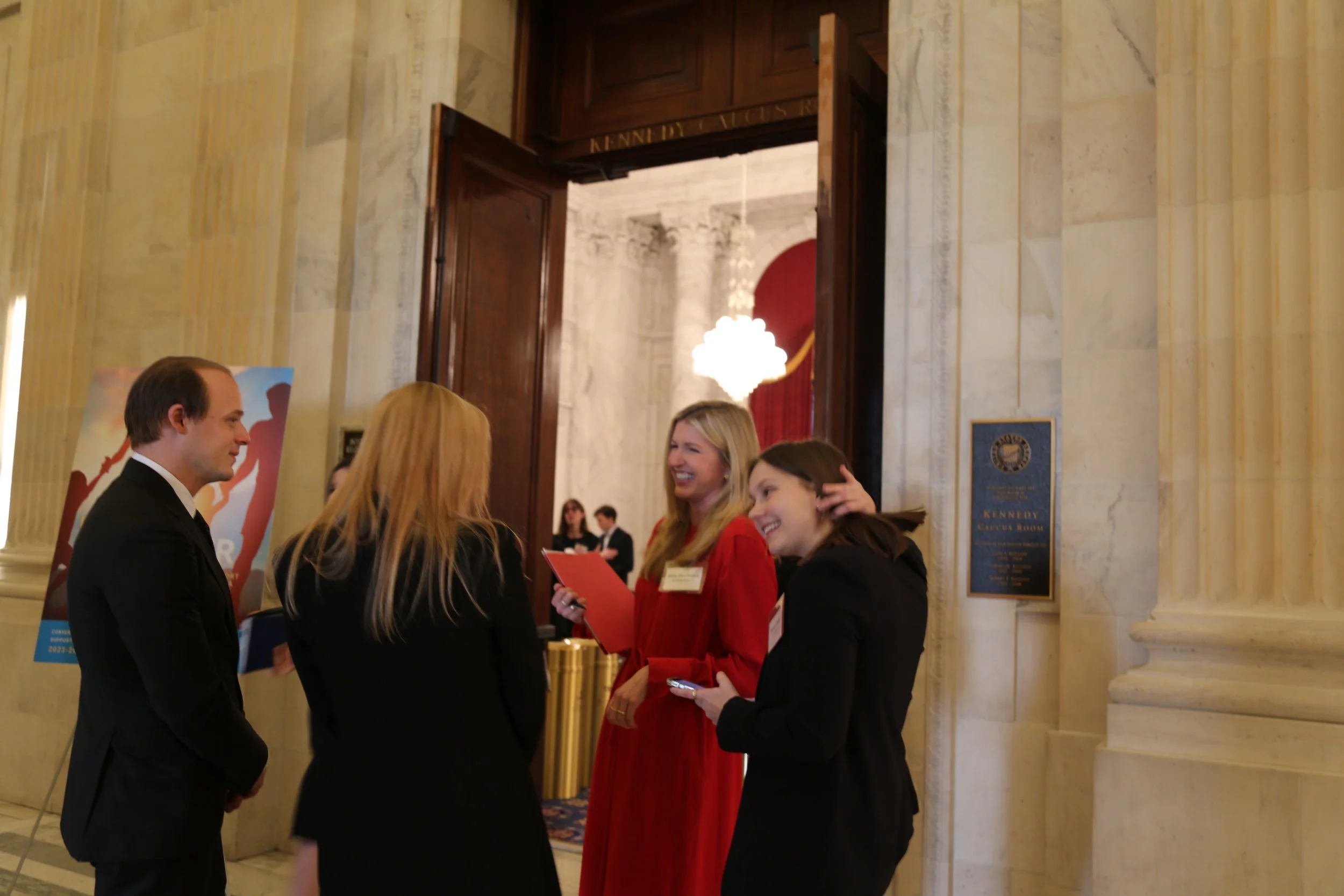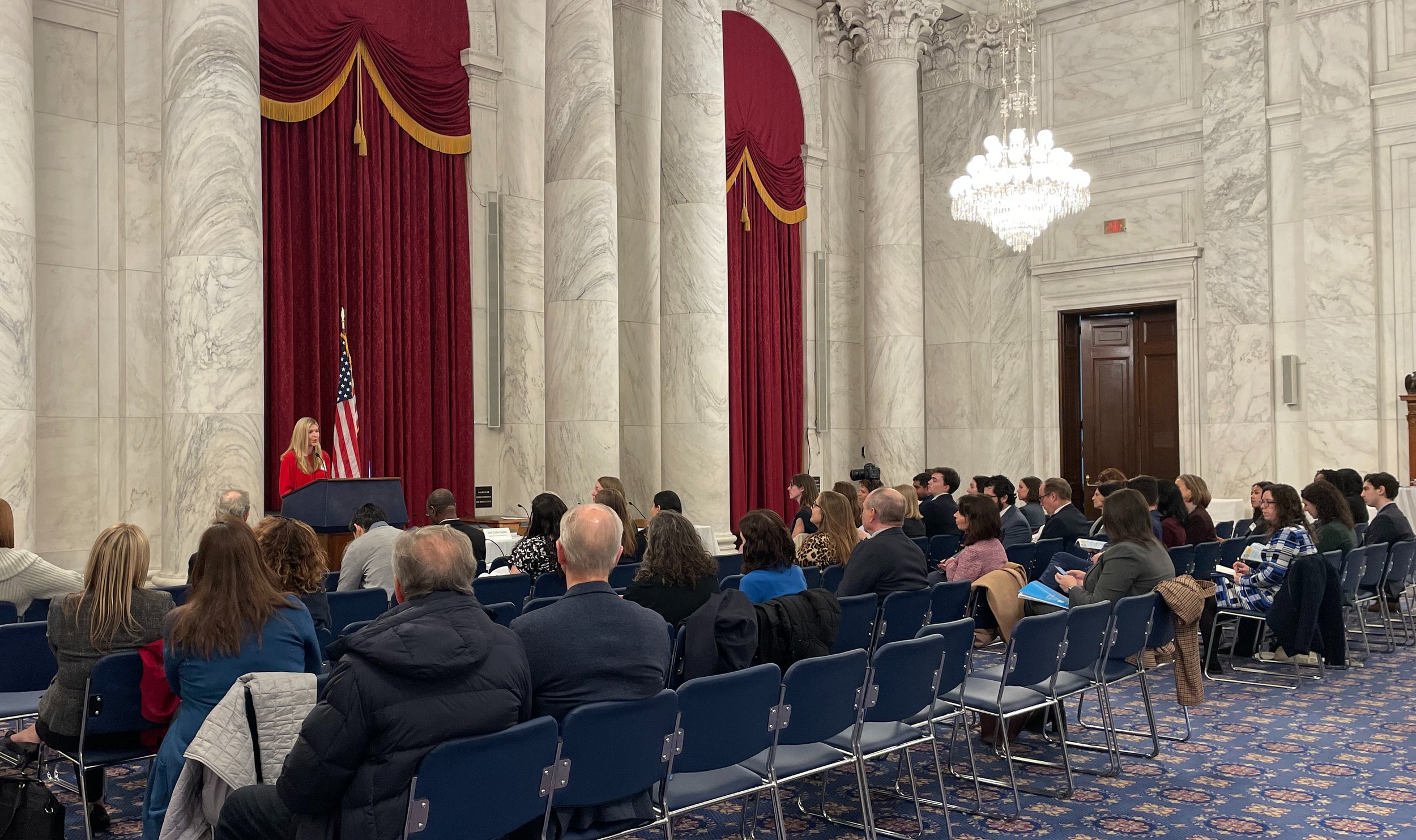For video of the Convergence Collaborative launch event, please click here: https://www.youtube.com/watch?v=wGAyTk0NWQs
One of my first jobs was a few doors down this hall working for Senator Shelby.
It’s always a delight to be back, and to my fellow LCs in the room, there’s light at
the other end of the letters.
After the Hill, I worked at the American Enterprise Institute. That is where I began
researching and writing about parents and children in the context of economic
opportunity. I was intrigued about why conservatives at the time gave little
attention to these issues, when motherhood in particular was such a strong
inflection point in the data. But it wasn’t personal yet.
Then in 2014, I got my dream job of running policy for a presidential campaign.
About two days after accepting the job, I found out I was pregnant with my first
child. I remember hiding the pregnancy for as long as I could because I was
scared of losing my place on the senior team. I hadn’t had that feeling before;
previously I could just rely on my work ethic.
After I gave birth, all of the data I’d seen about one quarter of women returning to
work within two weeks took on new meaning. Nothing is healed, attached, or
stable by then, or even close to it. When I miscarried twice and needed surgery, I
realized that’s something we still don’t really talk about.
I now have three young children, and every day I’m in conversations with my
husband about who is going to be where when. Even with multiple levels of care,
flexibility, and resources it can feel like tripping over your feet. Most American
parents don’t have these things.
You see there’s something about our culture that rubs up against parenthood. It
shows up in the data, in infant and maternal mortality rates, parents’ hope for the
future, people opting out of having kids, and the share of our budget that goes to
kids.
It shows up in our politics, too. In Texas, where I now live, we have some of the
most stringent abortion laws in the country, yet fewer resources than most to
support women and children during pregnancy and postpartum. This is a hard
combination for me to understand. In many ways, it is reflective of our political
polarization, which has infected many things, including family policy.
This is why, when I was approached by the Convergence team to lead this project,
I was in. The aim of the project was different than previous think tank projects I'd
been a part of --- it was to create a politically neutral space that was private and
not performative to build relationships across party lines and across industries to
see what if anything we agreed on.
We chose participants for the Collaborative first and foremost for their leadership
in the field of supporting children and families. But the second part was selecting
people whom we knew had deep policy and political differences.
I couldn’t be more thrilled to have worked alongside 32 of some of the most
talented, generous, and kind thinkers in family policy. To my knowledge, this is the
largest and most ideologically diverse group that has convened on this topic in
recent years and it has been an immense privilege to be part of it.
It’s been wonderful to work alongside the Convergence team, Mariah, Breelyn,
Russell, Beth, Alex, Dusie, as well as David and Ona on the facilitation team.
I started calling our Collaborative meetings “couples therapy” and that’s what it
felt like. We convened monthly throughout 2023, in person and remotely. In
addition to the relationships formed, we developed the report that we released
today.
Our recommendations are for federal and state policymakers, employers,
philanthropy and communities. They fall into four main categories:
1. Changing the Story, which includes elevating the needs of children in
policymaking through new a new committee or commission;
2. Rethinking Cash Support for Families, which includes how to use existing
spending better and directly relatively more support low-to-moderate
income families;
3. Ensuring More High-Quality Care Options for Children, this includes
parental care inside the home and care outside of it; and
4. Supporting Parents with Infants and Adopted Children, which among
other things includes a baseline of protection and security after birth.
We’ll hear more about them in the panel. But that last point – supporting parents
with new children - brings me to the Senators we will hear from tonight. Senators
Cassidy and Gillbrand have consistently put issues of children and parenthood at
the top of their agendas. I applaud them for that but also for the willingness to
work to find bipartisan solutions, most recently on paid leave.
The nation needs role models working together, families with young children need
support, and your work together accomplishes both. So without further ado, we’ll
hear from Senators Cassidy and Gillibrand and then onto our panel.


